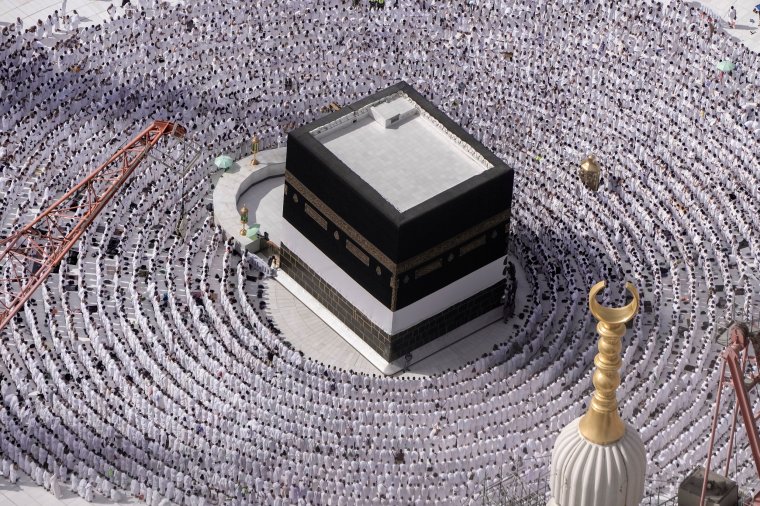More than two million Muslims are expected to participate in this week’s Hajj pilgrimage to the holy city of Mecca in Saudi Arabia.
One of the world’s largest religious gatherings finally returns to full capacity after years of coronavirus restrictions.
As one of the five pillars of Islam, the Hajj is a pilgrimage that all Muslims are required to undertake at least once in their life if they are physically and financially able to do so.
What is the Hajj pilgrimage?

The Hajj pilgrimage is one of the most important traditions in Islam, and involves carrying out a journey to the Kaaba, a sacred building in Mecca that all prayers are directed towards by Muslims around the world.
It dates back to the Prophet Ibrahim (Abraham in the Jewish and Christian traditions), according to the Qu’ran, but is also linked to the Prophet Muhammad, who is believed to have established the rites performed at the end the pilgrimage.
Hajj is seen as a time of self-renewal and symbolises equality, bringing people of all races and social statuses together for a series or rituals taking place over five or six days.
These include walking seven times anti-clockwise around the Kaaba, throwing pebbles at a pillar to symbolise stoning Satan, and sacrificing an animal.
For the pilgrims, it is a profound spiritual experience that wipes away sins, brings them closer to God and highlights Muslim unity.
How do Muslims prepare for Hajj?

Preparations for Hajj can take years, with many pilgrims spending their entire lives saving up for the trip to Saudi Arabia.
Pilgrims are required to have a permit to participate in the pilgrimage, which Saudi authorities issue to countries based on a quota system.
Travel agents offer a range of Hajj packages catering to all income levels, while charities offer financial support for those struggling to afford the trip.
Pilgrims begin by entering a state of spiritual purity known as “ihram.” Women forgo make-up and perfume and cover their hair, while men change into seamless terrycloth robes. The garments cannot contain any stitching, a rule intended to promote unity among rich and poor.
Pilgrims are forbidden from cutting their hair, trimming their nails or engaging in sexual intercourse while in the state of ihram. They are not supposed to argue or fight, but the heat, crowds and difficulty of the journey inevitably test people’s patience.
Many Muslims visit Medina, where the Prophet Muhammad is buried, before heading to Mecca.
When is Hajj 2023?
In 2023, Hajj is taking place between Monday 26 June to Saturday 1 July.


